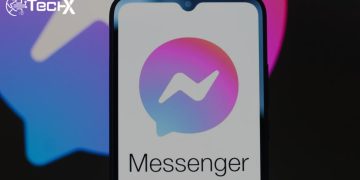OpenAI, the maker of ChatGPT, has launched its own web browser called Atlas, aiming to challenge tech giants like Google, whose Chrome dominates the browser market. The company says Atlas is not just another search tool but a new way to browse the web using artificial intelligence. The browser is currently available on Apple’s macOS system, marking a new chapter for OpenAI’s expanding ecosystem.
A Browser Built Around ChatGPT
Unlike traditional browsers, Atlas removes the usual address bar and replaces it with ChatGPT’s conversational interface. OpenAI CEO Sam Altman explained that Atlas was “built around ChatGPT,” allowing users to interact naturally instead of typing long web addresses or queries. This design shows OpenAI’s vision of merging browsing with AI assistance, giving users smarter, faster, and more personalized online experiences than ever before.
New Monetization Path for OpenAI
The launch of Atlas also reflects OpenAI’s strategy to create new ways to generate revenue. After investing heavily in AI research and cloud infrastructure, the company is now exploring how to make its technology more profitable. By turning ChatGPT into a core browsing experience, OpenAI hopes to attract more paying users and strengthen its financial position in the growing world of AI-powered tools and online services.
Introducing Agent Mode for Subscribers
One of Atlas’s most exciting features is the “Agent Mode,” which is available exclusively to paying ChatGPT users. This mode allows the browser to search, summarize, and complete tasks automatically without constant user input. It uses ChatGPT’s intelligence to understand browsing context and provide faster, more relevant results. OpenAI says this makes Atlas more efficient and useful for people who rely on the web for research, shopping, and work.
Also Read: Meta Launches New Parental Controls for Teen AI Chats
Expanding Through Smart Partnerships
To make its ecosystem stronger, OpenAI has built partnerships with major platforms like Etsy, Shopify, Expedia, and Booking.com. These collaborations will allow users to browse, shop, and book directly through ChatGPT and Atlas in a seamless way. It reflects OpenAI’s ambition to turn its services into a central hub for both consumers and businesses, offering convenience and intelligence in one digital experience.
Rising Popularity of ChatGPT
During OpenAI’s recent DevDay event, CEO Sam Altman revealed that ChatGPT had reached an impressive 800 million weekly active users—double the number from February, according to research firm Demandsage. This growth highlights how quickly people are adopting AI tools in their daily lives. Atlas aims to build on this momentum, offering those users a new and smarter way to browse the web using the technology they already trust.
Experts React to Atlas Launch
Tech expert Pat Moorhead, CEO of Moor Insights & Strategy, said he expects early adopters to experiment with Atlas but doubts it will immediately threaten established browsers like Chrome or Microsoft Edge. He noted that mainstream and corporate users might wait for their preferred browsers to introduce similar features. Still, Moorhead acknowledged that OpenAI’s move shows the growing role of AI in shaping how we search online.
A Changing Landscape for Online Search
OpenAI’s entry into the browser market comes just a year after Google faced legal trouble for being declared an illegal monopolist in online search. While the court did not order Google to separate its Chrome browser, the decision marked a turning point for competition. At the same time, research shows more users are now turning to large language models like ChatGPT for answers and recommendations instead of traditional search engines.
The Future of Browsing with AI
As AI continues to transform digital habits, browsers like Atlas may signal the beginning of a new era. Data from research firm Datos shows that nearly 6% of desktop searches now go through large language models, more than double last year’s figure. While Google and Microsoft are integrating AI into their platforms, OpenAI’s Atlas presents a bold and independent vision one where conversation replaces search and intelligence powers every click.















